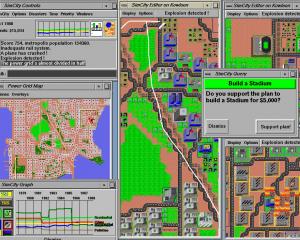
A submission is defined in literature as the action of accepting or yielding to a superior force or to the will of an authority. While we the people are not exactly forced into total submission, we are asked to comply with a document that seeks to overwhelm some ratepayers with a 76% increase in rates.
To add insult to injury, the ORC’s document on its 10-year plan appears to be sent only to selected ratepayers.
This ORC 10-year plan is notable for the sin of omission rather than one of enlightenment.
Why is it, for example, that the council studiously failed to mention its asset base as a source of capital? Port Otago and its subsidiary property company Chalmers Property are owned and administered by the Port of Otago on behalf of the owners, the ratepayers, and are fully commercial entities.
The ownership of New Zealand’s most successful port is in a public-private shareholding status. Port of Tauranga is still majority owned by the Bay of Plenty Regional Council and the public collectively own around 48% of the shares. A similar situations applies with South Port (Invercargill) and the public can purchase shares in that successful port company.
Importantly for the long-suffering ratepayer, the partial sale of Port Otago would fill the vaults of the ORC with many millions of dollars — cash it needs to fund long-forgotten or, more correctly, ignored environmental obligations. We all remember the $30million-plus the ORC poured into the stadium with limited environmental benefit, as I recall.
It is, however, Chalmers Properties which has an undisclosed array of property investments throughout New Zealand.
The harbour basin here in Otago is subject to grand schemes, or is that grand dreams, of Dunedin city councillors and could quickly be developed if this foreshore land was sold in freehold title (at a discounted price) to the current occupiers, who would be then incentivised to use their own securities to fund development.
It is worth noting property speculation (to use the Government’s preferred definition for investment) is no longer fashionable and perhaps even less so where land banking effectively “shorts” the property market of land for housing, especially in and around Auckland. Has the ORC even considered raising capital by requiring the sell-down of land controlled by Chalmers Property?
The ORC has long used the old argument that it receives a good dividend from Port Otago, which meets its needs. We are now in a completely different set of circumstances where either it sells assets or use ratepayers as its cash cow. It is doubtful a sell-down of assets has even been considered, which is the default position of a monopoly and a local authority. The question of the propriety of a local authority engaging in property speculation/investment seems not one to be addressed, when it absolutely should be.
What we are faced with today, in fact, is deferred maintenance by the ORC over a host of environmental issues.
The old adage of "a stitch in time" holds true as the council simply ignored the spread of wilding trees for years, as but one example, despite this issue being constantly brought to its attention.
The condition of Lake Hayes has been an issue for a long time but nothing was ever done. A councillor once stated he would have a quiet word with the chair of the concerned residents’ group.
It was never explained how that would fix the problem of enrichment in that water body. Have any readers found mention of didymo, lagarosiphon or lake snow in the 10-year plan, but then such organisms were not introduced by water users who are used as the whipping boy for concerns over water quality.
The issues we as ratepayers now face are real and need substantial capital sums to at least attempt to remedy problems which have been around for as long as some of the long-serving councillors. Perhaps that is the first issue that needs ratepayer attention but that requires waiting till election time next year.
- Gerrard Eckhoff is a retired Central Otago farmer and former Otago regional councillor and Act New Zealand MP.
Comments
Used the ORC online form to make a submission. This is a shockingly bad form that purposely leads submitters in a very particular direction predetermined by the council. I urge other ratepayers to think carefully about their submissions. I personally felt I was left with no option but to ignore all the questions and their "preferred option" recommendations and instead voice my concern of a lack of confidence with the council. I simply can no longer trust them in anything they say or do.











